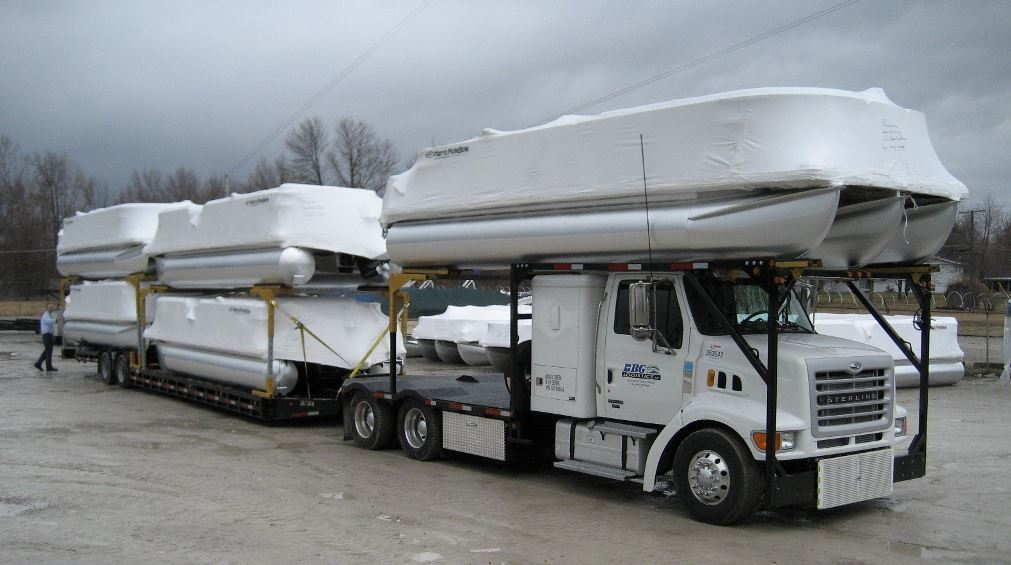PONTON BOAT TRANSPORT
A pontoon boat, commonly referred to as just a "pontoon," is a type of boat that uses cylindrical flotation devices, or pontoons, to stay afloat. These pontoons give the boat stability and buoyancy. Typically, pontoon boats have a broad, flat deck that's mounted atop the pontoons. They are popular for leisure activities such as cruising, fishing, and entertaining due to their stability and spacious decks.
Before trucking (transporting overland using a truck or trailer) a pontoon boat, there are several considerations to take into account:
-
Size and Weight: Like any boat, you need to know the pontoon boat's exact dimensions (length and width) and weight to ensure it can be legally and safely transported.
-
Trailer Configuration: Pontoon boats require specialized trailers with supports designed to cradle the pontoons. Ensure the trailer is suitable for the boat's size and that the boat is secured properly.
-
Height: Although pontoon boats are generally not very tall, once they are placed on a trailer, the combination could pose clearance issues. Make sure it won't exceed road height limits, especially if there are structures like canopies or roofs installed.
-
Width: Depending on the design, some pontoon boats can be quite wide. You might need special permits if the boat exceeds standard road width limits.
-
Preparation:
-
Secure All Items: Ensure that all items, including chairs, equipment, and personal belongings, are securely stowed or removed.
-
Battery: Disconnect the battery to prevent any accidental electrical issues.
-
Fuel: Ensure that fuel tanks are sealed and that there's no risk of leakage.
-
-
Legal Considerations:
-
Permits: If the boat is particularly wide or if you're traveling across certain jurisdictions, you might need special permits.
-
Lighting and Signals: Ensure the trailer's lights, brake signals, and turn signals are all functioning correctly.
-
-
Insurance: Check your boat's insurance policy to see if it covers transportation damages. If not, consider acquiring additional short-term coverage.
-
Choose a Reliable Transporter: If you're not transporting it yourself, make sure you select a reputable company or individual experienced in transporting pontoon boats.
-
Route Planning: Always plan your route in advance. Avoid roads with low bridges, overhanging trees, or any other obstacles that could pose a problem given the boat's height on the trailer.
-
Inspection: Conduct a thorough inspection of the pontoon boat both before and after transport. It's a good idea to document the boat's condition with photographs.
-
Safety Considerations: Always check the brakes, tire condition, and bearings of the trailer before embarking on the journey. Also, ensure all required safety chains and tie-downs are securely fastened.
-
Weather: If possible, avoid transporting your boat in inclement weather, especially high winds, which can affect stability.
By taking these considerations into account, you can ensure that your pontoon boat is transported safely and arrives at its destination in the same condition it started in.
